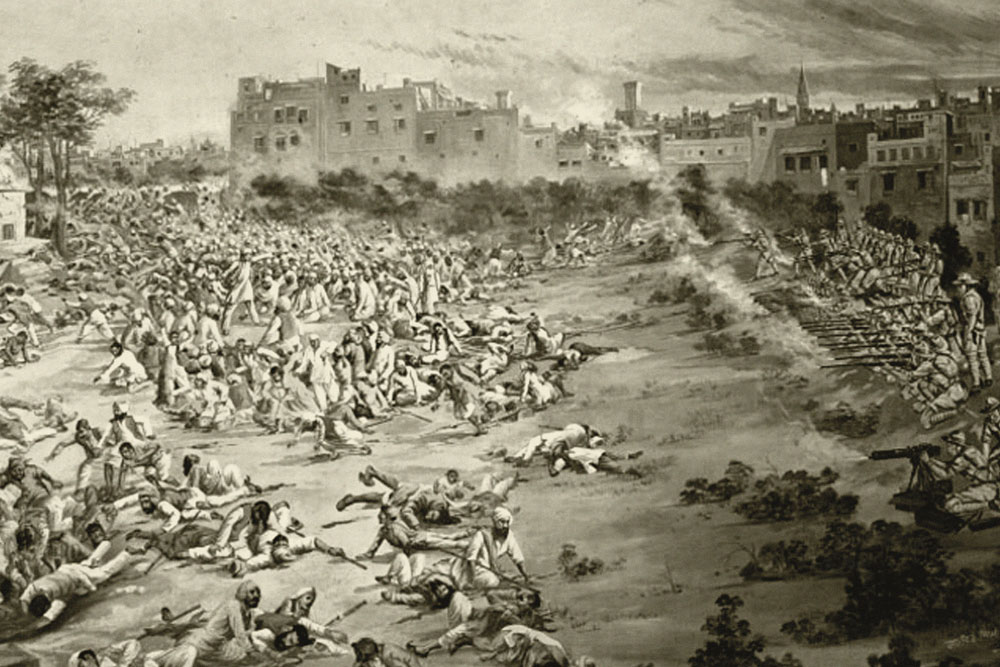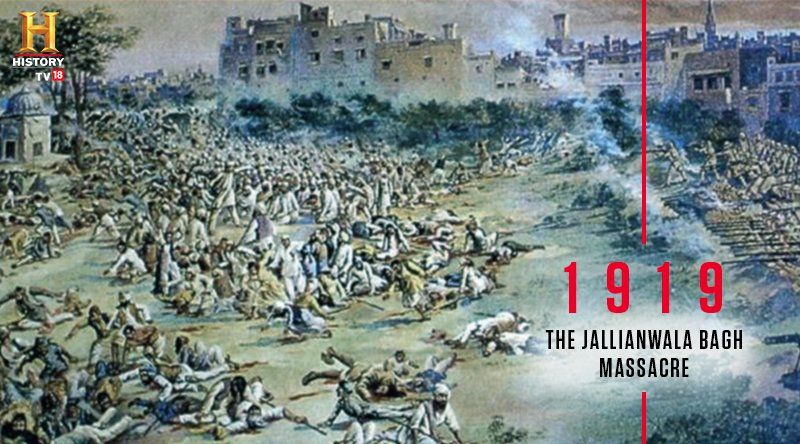New Delhi, Online Desk. Jallianwala Bagh Massacre The festival of Baisakhi is celebrated with great fanfare in Punjab, but on this day in the year 1919 such a painful incident took place which is still imprisoned in the black pages of history. On April 13, 1919, the British fired unarmed innocents with bullets in Jallianwala Bagh, located a short distance from the Golden Temple in Amritsar, Punjab.

The only mistake of these innocent people was that they tried to raise their voice against the British rule. Today 104 years of the Jallianwala Bagh Massacre have been completed, but even today the soul trembles remembering this dreadful act of the British. Why the massacre was done on this day, let’s know the story of this dreadful step of the British…
Opposition to the Rowlatt Act and then the massacre…
In fact, in the year 1919, seeing the growing voice of independence in India and especially in Punjab, the British carried out the Jallianwala incident. A month before this massacre, on March 8, the British Government had passed the Rowlatt Act in India. Under the Rowlatt Act, the British government was trying to suppress the voice of Indians.

- Under the Rowlatt Act, the British government could arrest any Indian at any time and put them in jail without a case. Against this decision, on April 9, big leaders of Punjab Dr. Satyapal and Kitchlu protested, who were arrested by the administration and sentenced to Kalapani.
- On April 10, the arrest of the leaders led to massive protests in Punjab, to quell the protests, the British government imposed martial law. People were prevented from gathering through this law.
13 april black day
Martial law had been imposed in Punjab, but every year on April 13, a fair was held in Jallianwala Bagh (Jallianwala Bagh Massacre) on the day of Baisakhi and thousands of people used to gather here. The same happened on this day too, thousands of people had come to see the fair along with the children. Meanwhile, some leaders also organized a meeting there to protest against the Rowlatt Act and the arrest of other leaders.
While the leader was making a speech protesting the arrest, General Reginald Dyer suddenly entered the garden with his armed men through the narrow lanes and closed the only exit. Dyer ordered the soldiers to fire on the people as soon as they entered. The slaughter of thousands of people started and there was no way out.
Pile of dead bodies in the well
The British soldiers did not spare anyone, be it an adult or a child. Bullets were fired continuously for 15 minutes and more than 1600 rounds were fired. To avoid this firing, people started jumping into a well there. The well was so deep that no one could escape, as soon as the well was filled with dead bodies.
The number of dead is not known till date
Hundreds of people had lost their lives in the Jallianwala Bagh massacre, but its actual figure could not be ascertained till date. According to the then British government, 120 people fell into the well and 484 died due to firing in this massacre. At the same time, Madan Mohan Malviya, a prominent leader of that era, said that more than 1300 people were killed in this incident.
Bullet marks are still present today

It has been 104 years since the Jallianwala Bagh massacre, but the wounds of this terrible act of the British government are still present on the walls there. When fired upon by the British soldiers, many bullets entered the walls. Traces of this bullets have been preserved even today. In the memorial built there, 3 galleries dedicated to the martyrs have also been made, in which their statues are installed.
Britain has not apologized till date, the Queen expressed grief
Till date no apology or sorrow has been expressed from Britain regarding the Jallianwala incident. However, Queen Elizabeth II, who visited India in 1997, expressed her sorrow by calling the scandal disturbing. In fact, the Queen herself had visited the Jallianwala Bagh Memorial and paid homage to the victims.




GIPHY App Key not set. Please check settings